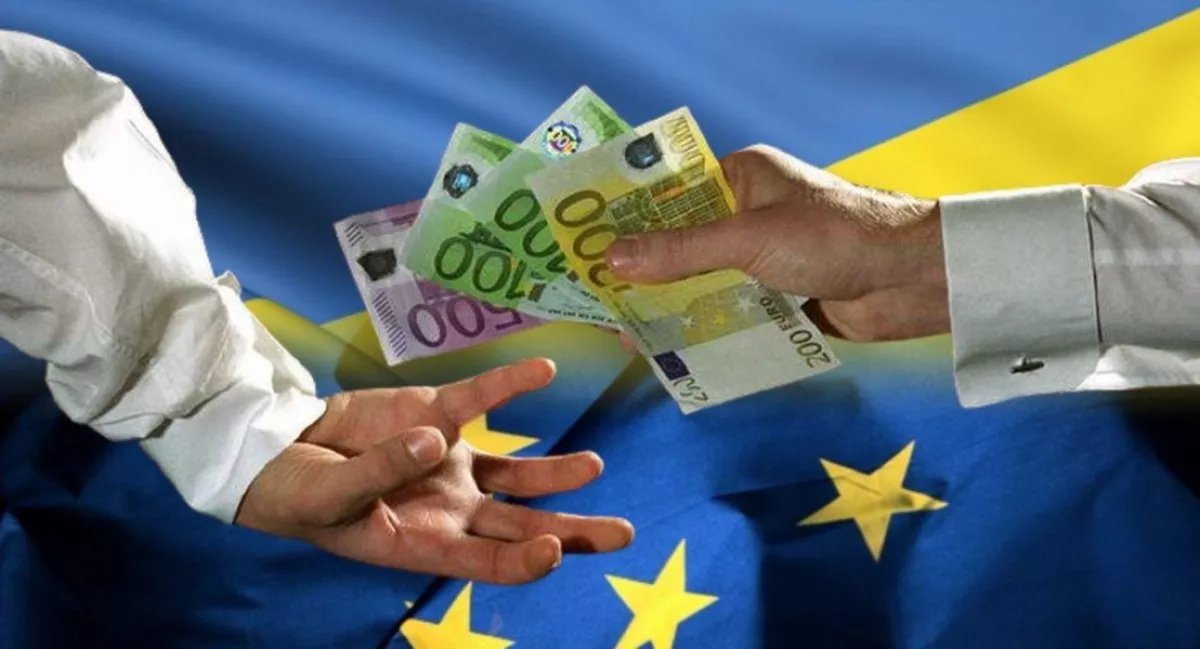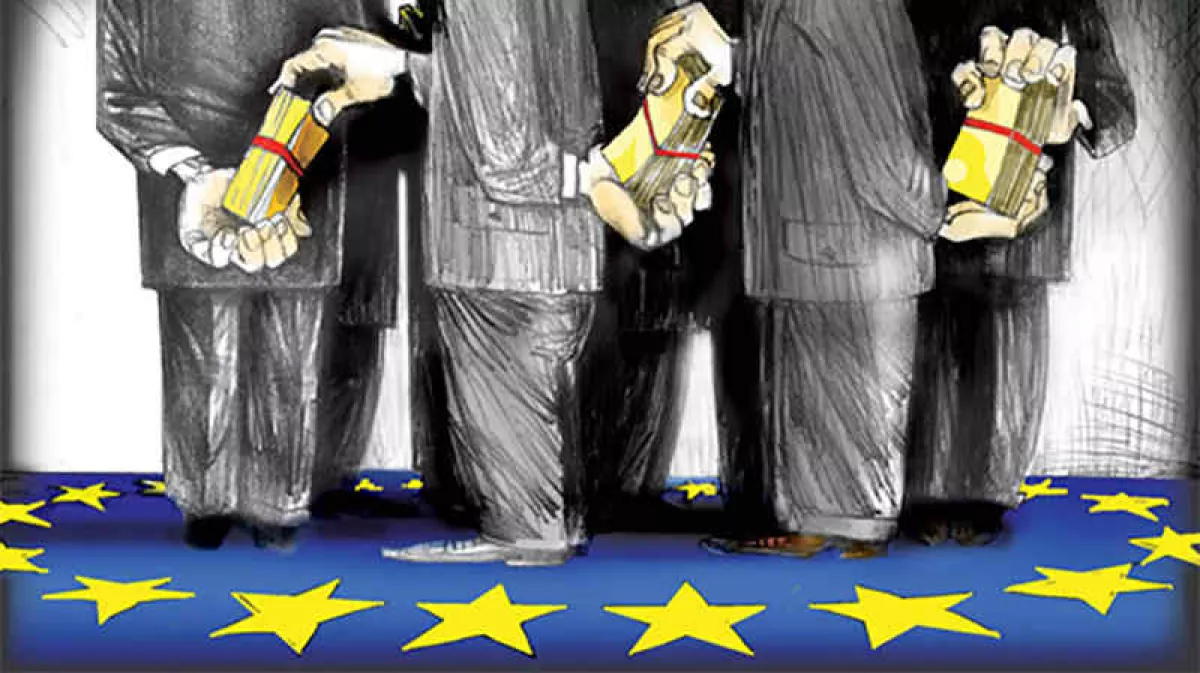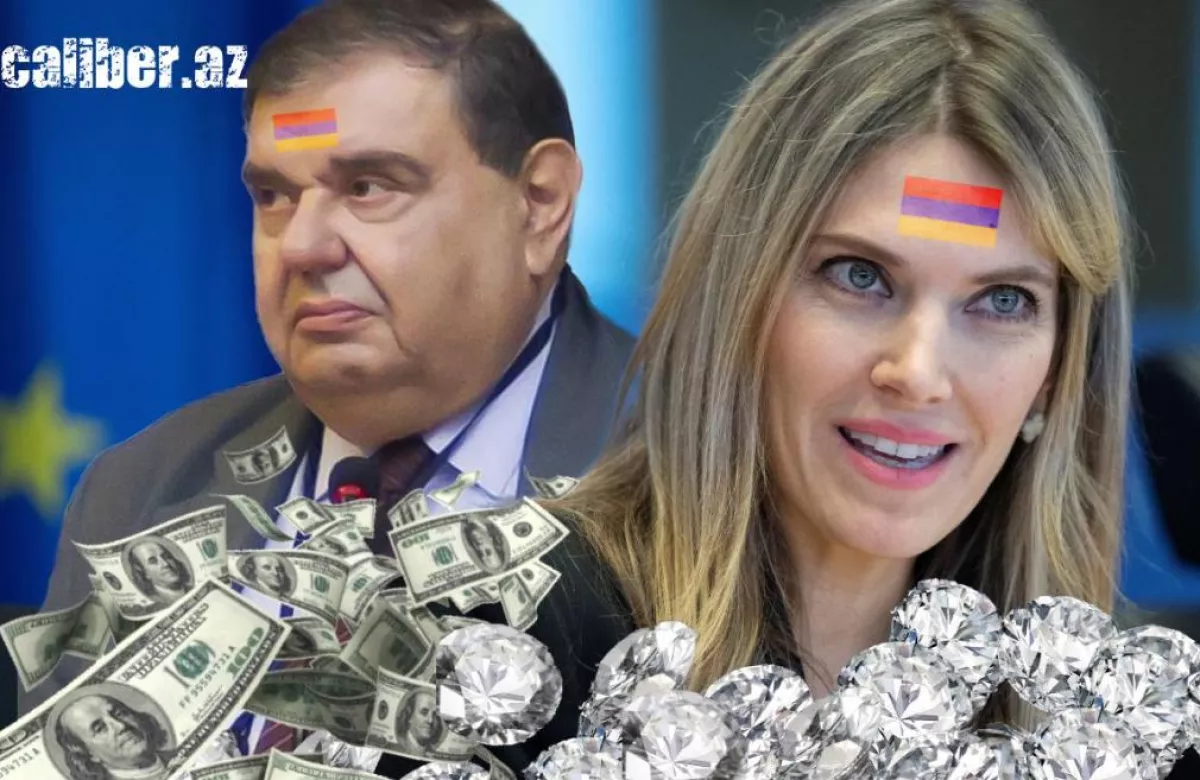Corruption in the blooming "garden" The unpleasant side of the EU
On January 6, a trial began in France against the former president of the country, Nicolas Sarkozy. The prosecution alleges that while he was serving as the Minister of the Interior, he struck a deal with Libyan leader Muammar Gaddafi, who, in exchange for certain political dividends, provided his French partner with funds used in Sarkozy's presidential campaign. This was stated by Saif al-Islam al-Gaddafi, the son of the Libyan leader, and in 2012, the Mediapart publication released a document from Libyan intelligence detailing the allocation of the corresponding funds. The case file consists of 73 volumes, the core of which is made up of witness testimonies who knew that Sarkozy sought assistance from Libya. Gaddafi was later overthrown and killed by Libyan opposition forces, which Sarkozy had been financing while serving as president of France.
If the Soviet Union spent seventy years waging a fierce battle against bureaucracy, the European Union's fixated idea is the fight against corruption. EU officials take great pride in their achievements in this area and consistently emphasize that, according to global rankings compiled by "independent" research centres (which are usually located in Europe), their countries are listed as the least corrupt. It goes without saying that, by a strange twist of fate, the "most corrupt states" include those with disagreements with Brussels or defiant leaders, such as Hungarian Prime Minister Viktor Orbán.
However, even the European Union's oversight bodies are forced to sound the alarm. A joint report by the Directorate-General for Justice of the EU and the European Anti-Fraud Office (OLAF) reveals that while previous thefts from EU funds amounted to hundreds of millions of euros, today they are measured in billions. The cost of corruption in EU countries stands at 323 billion euros, almost a third of the EU’s seven-year budget for 2016–2022. European police and prosecutors have opened 67,800 cases on charges of "abuse of office" and "bribery," setting a record for the entire history of the European Union. In addition to these losses, there are also "erroneous" expenditures, which, according to the European Court of Auditors, amount to 7 billion euros. Europeans are hesitant to acknowledge these losses as the result of fraud or embezzlement, although many such expenditures, such as funding agriculture on land that is clearly unsuitable for cultivation, are evidently the result of corruption.

Faced with the facts, the European Commission was forced to officially acknowledge the annual cost of corruption at 120 billion dollars, noting that the real figures are "much higher." This amount corresponds to the GDP of a wealthy country like Qatar or the annual budget of the European Union. This statistic does not include corruption in pan-European institutions, which also reaches staggering amounts. In 2022 alone, 4.8% of the EU budget was reported to have disappeared from the accounts of government bodies in unknown directions.
According to a survey conducted last summer, more than two-thirds of European Union citizens believe corruption is widespread in their countries. In Portugal, Greece, Slovenia, and Malta, over 95% of citizens share this view. Seventy-five per cent of Europeans speak of the close connection between business and politics, which creates fertile ground for bribery, and more than a quarter of Europeans (27%) admitted to encountering corruption in everyday life.
European media and politicians regularly emphasize that corruption in the EU is limited to southern and eastern European countries, attributing it to their poverty and "cultural characteristics." However, this is far from the case. In Germany, the federal corruption report for 2023 notes that around 3,840 such crimes are registered annually in the country. The annual growth of such crimes is around 6.7%, and the total damage doubles, reaching 57 million euros in 2023.
At the same time, German law enforcement agencies are forced to admit that the available figures represent only the tip of the iceberg. Most cases of corruption in Germany go undetected and do not make it into the statistics.
In recent years, Germany has been rocked by several major corruption scandals. During the COVID-19 pandemic, a number of politicians and civil servants were accused of receiving financial benefits from the procurement of protective masks, leading to the high-profile "mask scandal."
This was followed by the "consultant case" in the Ministry of Defence, during which illegal contracts for consultancy services were discovered, raising suspicions of corruption, mismanagement, and a lack of transparency within the military ministry.

Around two years ago, a scandal erupted involving the Warburg Bank, which implicated Johannes Kahrs, a former ally of German Chancellor Olaf Scholz. The scandal revolved around a scheme that included a range of criminal cases, which were investigated by the Cologne public prosecutor’s office. The main charges involved tax evasion, embezzlement, and corruption. In one of the Warburg Bank’s safes, 214,800 euros in cash were found, the ownership of which has never been determined.
German analysts note that the sectors most susceptible to corruption include construction permit issuance, healthcare, and the pharmaceutical industry.
In 2021, the European Court of Justice found former Belgian Minister of Defence and Agriculture Karel Pinxten "guilty of very serious misconduct" while serving as a member of the European Court of Auditors (ECA). During his two terms in the ECA from 2006 to 2018, Pinxten, a member of the Flemish Liberal Party Open VLD, led by Belgian Prime Minister Alexander De Croo, illegally continued to engage in national politics and improperly used ECA resources. He paid for trips to ski resorts and hunting expeditions using funds from the Court of Auditors and also used an ECA fuel card to purchase fuel for other individuals. As the representative of the Supreme Court noted: "This is only the second case where a senior EU official stands trial for such actions." Usually, justice does not extend to such individuals. Ultimately, Pinxten was punished by a two-thirds reduction in his pension.

In the context of the globalizing market, many of the EU's corruption scandals involve financial dealings with foreign countries. This also allows for "adjusting" the statistics by moving the data on the offence outside the European Union. Interestingly, according to a survey conducted by Transparency International, law-abiding behaviour at home does not necessarily mean refraining from participating in corruption schemes abroad. An example of this is the "Qatargate" scandal, which is being investigated by the Belgian prosecution. The main suspects are Socialist Member of the European Parliament Eva Kaili and her partner Francesco Giorgi, who are accused of receiving hundreds of thousands of euros from officials of Qatar and Morocco in exchange for promoting the interests of these countries in Brussels. During the investigation, evidence of corruption within the European law enforcement system also emerged, including a recording of a conversation between Giorgi and a high-ranking Belgian police officer, Ceferino Alvarez Rodriguez, who secretly visited the suspect's apartment in May 2023.
In conclusion, one can only ask whether the triumph of corruption is the cause or consequence of the decline of the Old Continent, which is losing global competition both in the West and the East.








